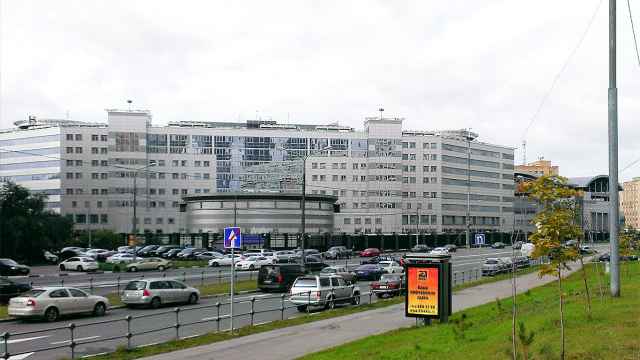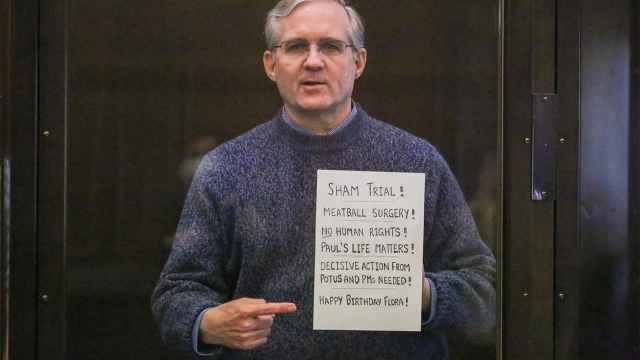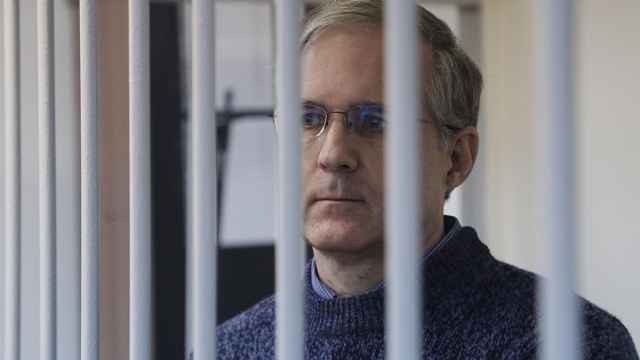Back in the 1980s, the Central Intelligence Agency collected Soviet jokes and likely shared them with President Ronald Reagan. I can see why they did it: During the Cold War, it warmed Americans’ hearts that at least some Russians made fun of the official Soviet propaganda narrative. It was seen as a chink in the Communist armor. Perhaps, but it’s hard to tell: Russian humor about the way the country is run is an unbroken tradition from the czarist era to the present day.
The CIA-Reagan Soviet joke pipeline was no secret at the time. One from a list declassified in 2013 was a particular favorite – Reagan told it repeatedly, once adding he’d shared it with Soviet leader Mikhail Gorbachev and gotten a laugh from him. The CIA version goes like this:
An American tells a Russian that the United States is so free he can stand in front of the White House and yell, “To hell with Ronald Reagan.” The Russian replies: “That’s nothing. I can stand in front of the Kremlin and yell, ‘To hell with Ronald Reagan,” too.
To the U.S. president, the jokes were a sign that Russians had “a pretty cynical attitude toward their system.” The observation itself was correct, but it was also out of context. Systems changed, but the cynicism remained.
When Dmitry Karakozov fired a gun at Czar Alexander II in 1866, an apocryphal version of why he missed involved a peasant who’d pushed the terrorist the moment he pulled the trigger. The joke that circulated about it went,
“Who shot at the czar?” – “Some nobleman.” – “Who saved the czar?” – “Some peasant.” – “Did he get a reward?” – “Yes. They ennobled him.”
Other pre-revolutionary jokes involved a runaway lion who survives by eating generals (there are so many of them in Russia that no one notices when they go missing) and a czar surprised at meeting a peasant who looks remarkably like him. “Did your mother serve at the palace?” the czar asks. “No,” the peasant replies, “My father did.”
The genre persisted immediately after the Bolshevik revolution.
Peasants come to see Lenin and tell him: “We’ve got nothing left to eat.” “Why don’t you mow some grass and eat it,” Lenin replies. “We’re scared that’ll make us moo like cows,” the peasants complain. “I ate a jar of honey yesterday and I’m not buzzing,” Lenin counters.
It persisted in the Stalin era, when people were routinely sent to the prison camps for telling jokes.
A bunch of little devils comes to see the U.S. president. He’s scared; “What do you want?” he asks them. “You know that Stalin died and went to hell?” the devils say. “Well, we’re the first refugees.”
Starting with the Stalin period and all the way through Gorbachev’s brief rule, Soviet jokes have fascinated Western academics, who have published translated collections and tried to make sense of the contrast between the ubiquitous state propaganda and the often bitter sarcasm of its recipients. But then the propaganda was gone and the jokes weren’t.
President Boris Yeltsin addresses the nation: “For three years, our nation was on the edge of a precipice. Now, finally, it takes a step forward!”
Probably the last Yeltsin joke was widely told on January 1, 2000, the day after the first post-Soviet president announced his resignation in favor of Vladimir Putin:
Yeltsin wakes up with a huge New Year’s Day hangover. “Now,” he thinks, “I need to find someone who remembers what I said last night.”
And of course, there are hundreds if not thousands of Putin jokes, even if most of them aren’t particularly funny.
Moscow. A rally in support of candidate Putin. All the other candidates must attend, or else.
In a 1988 paper, Gregor Benton argued that political jokes in free societies are different from those told in dictatorships: “The reason is obvious: a society with the vote has no urgent need of political jokes, for it has more effective ways of easing political tensions.” In Russia, though, the political joke has thrived for centuries, with our without the vote, after revolutions and counterrevolutions, regardless of the level of political tension.
Emil Draitser, one of the earliest students of the Soviet joke, probably had a better idea when he wrote in 1989,
It seems to be contrary to the nature of folklore to engage itself in approval, even less so, in praising any state institutions which, by their very nature, tend to limit many free-spirited manifestations of life. By and large, folklore is a private endeavor.
That’s something that escaped Reagan when he looked to the jokes for confirmation of his conviction that the Soviet system was rotten; it was, but the jokes were evidence of something else. It’s often missed when pundits and politicians say “Russia” when they should be saying “Putin.”
Russia has long, if not always, been a country with large gaps between the ruling elite and the people, the state and the people. The political jokes of every era in recent and distant history tell the story of this separation. I doubt they’ll dry up even if someone ever tries to govern the country in the interests of its people: Even then, the governed will step back to put some distance between themselves and the state.
That’s something to keep in mind in all the discussions of punishing Russia and even bringing it to its knees. Mind the gap, and punish the targets of the jokes, not those who tell them.
Leonid Bershidsky is a Bloomberg Opinion columnist covering European politics and business. He was the founding editor of the Russian business daily Vedomosti and founded the opinion website Slon.ru.
A Message from The Moscow Times:
Dear readers,
We are facing unprecedented challenges. Russia's Prosecutor General's Office has designated The Moscow Times as an "undesirable" organization, criminalizing our work and putting our staff at risk of prosecution. This follows our earlier unjust labeling as a "foreign agent."
These actions are direct attempts to silence independent journalism in Russia. The authorities claim our work "discredits the decisions of the Russian leadership." We see things differently: we strive to provide accurate, unbiased reporting on Russia.
We, the journalists of The Moscow Times, refuse to be silenced. But to continue our work, we need your help.
Your support, no matter how small, makes a world of difference. If you can, please support us monthly starting from just $2. It's quick to set up, and every contribution makes a significant impact.
By supporting The Moscow Times, you're defending open, independent journalism in the face of repression. Thank you for standing with us.
Remind me later.








